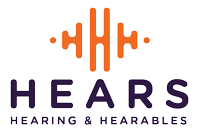Professional Provider Network Policy
This Professional Provider Network Policy (“Network Policy”) outlines the terms and conditions for the use of the Professional Provider Network services provided by Hears Hearing & Hearables (“Agency Network”). By using the Provider’s network services, all Providers (“Providers”) agree to comply with this Policy. This Policy is designed to protect the Agency Network, its Providers, and ensure the efficient, legal, and ethical use of the network services.
Scope
This Policy applies to all Providers of the Provider’s Professional Provider Network services, including but not limited to individuals, audiologists, hearing healthcare professionals, and their employees, contractors, and agents.
Definitions
- Professional Provider Network: A network infrastructure that is privately managed by Hears Hearing & Hearables and restricted to authorized Providers.
- User: Any individual or entity authorized to access and use the Provider’s network services.
- Service: The provision of access to the Provider’s Professional Provider Network and related resources.
Acceptable Use
Providers are required to use the Provider’s network services in a lawful, ethical, and community-aligned manner. The following activities are strictly prohibited:
- Illegal Activities: Violating local, state, national, or international laws.
- Intellectual Property Infringement: Unauthorized use or distribution of copyrighted materials.
- Security Violations: Attempting to compromise the network’s integrity or security.
- Harmful Activities: Engaging in fraudulent, harmful, or malicious activities.
- Unauthorized Access: Accessing data or systems without proper authorization.
Ethics and Transparency
Providers are expected to uphold the highest ethical standards in their professional practices. To ensure integrity, Providers must:
- Adherence to Professional Standards and Best Practices
- Providers must follow “best practices” as outlined by the American Academy of Audiology (AAA) and similar professional organizations.
- Best Practice Guidelines:
“The American Academy of Audiology supports the creation of evidence-based Clinical Practice Guidelines to ensure applicable and clear recommendations that guide clinical practice. …well-developed guidelines have the potential to (1) enhance current, appropriate clinical practice; (2) improve the quality of audiologic diagnostic assessment and treatment; (3) result in better patient outcomes; (4) improve cost-effectiveness of care; and (5) identify areas requiring further research or investigation.” - Providers should make every effort to adhere to these guidelines; however, it is acknowledged that best practices may not always be possible, particularly in telehealth or other situations where resources or logistics may limit adherence. In such cases, Providers must:
- Inform the patient of what the best practices are and why they may not be feasible in the given circumstances.
- Make every effort to deliver care in a manner that is both practical and effective for the patient’s convenience and situation.
- Document the circumstances and the care provided to ensure transparency and accountability.
- Disclosure of Biases and Affiliations
- If the practitioner has a bias, they must share this bias with the consumer and explain why they have it.
- If the clinic or practitioner is owned by or affiliated with a specific hearing aid manufacturer, this relationship must be disclosed to the consumer.
- Honesty and Transparency
- Practitioners must maintain honesty and transparency in all actions, pricing, and opinions.
Procedural Best Practices
Fitting Appointment
- Otoscopic Exam: Check the ear canal for any abnormalities.
- Fit Hearing Aid(s): Ensure appropriate domes and counsel on earmolds if needed.
- Proper Insertion:
- Address feedback and comfort.
- Offer retention locks if necessary.
- Patient Practice: Practice insertion and removal techniques.
- Hearing Aid Functionality:
- Explain charging/battery maintenance.
- Demonstrate physical controls (if applicable).
- Counsel on Adaptation:
- Address common adaptation concerns, such as one’s own voice or unfamiliar environmental noises.
- Hearing Aid App Features:
- Guide on app usage, Bluetooth pairing, and direct streaming for calls or music.
- Review different listening settings.
- Expectation Counseling: Help the patient understand realistic outcomes.
- Warranties: Explain repair and loss & damage warranties.
Verification Appointment
- Real Ear Measurement (REM): Use probe mic verification to ensure hearing aids are appropriately programmed.
- Counsel patients on the results.
- Make programming adjustments if needed.
- Review Patient Experience: Assess physical and auditory comfort after the first couple of weeks.
- Communication Strategies: Counsel patients on effective communication techniques.
Follow-Up Appointments
- Maintenance: Teach proper cleaning and maintenance of hearing aids.
- Data Log Review: Review and discuss hearing aid usage data.
- Patient Perceptions: Assess the patient’s ongoing experience and address any concerns.
- Additional Counseling: Provide further guidance as needed to ensure successful outcomes.
User Responsibilities
Providers are responsible for:
- Account Security: Protecting account credentials.
- Compliance: Following all terms of this Policy.
- Resource Usage: Using network resources responsibly.
- Reporting Violations: Reporting suspected violations to the Agency Network.
Agency Network Responsibilities
Hears Hearing & Hearables commits to:
- Network Security: Ensuring a secure network environment.
- Privacy: Handling data in compliance with privacy laws.
- Support: Offering technical assistance as needed.
- Transparency: Informing Providers about policy changes.
Enforcement and Penalties
To maintain compliance, the Agency Network reserves the right to:
- Monitor: Regularly review network activities.
- Investigate: Address suspected violations.
- Sanction: Implement warnings, suspensions, or terminations of access.
- Take Legal Action: Seek legal remedies if necessary.
Disclaimer
The Agency Network is not liable for damages arising from the use or inability to use the Professional Provider Network services.
Amendments
The Agency Network may revise this Policy at any time. Providers are responsible for reviewing and complying with updates.
Contact Information
For questions or concerns, contact:
Hears Hearing & Hearables
11 10th Ave S., Suite A
Hopkins, MN 55343
952-767-0672
[email protected]
By using the Agency Network’s Professional Provider Network services, Providers acknowledge that they have read, understood, and agree to this Policy.
